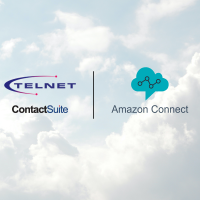For a long time contact centres have been known to have very high staff turn overs with most having a turnover rate of 30-45 percent with some seeing a turnover rate higher than 100 each year! A common cause for this is due to Contact Centres not prioritising the frontline, ensuring they have the right tools and training not do their job and providing an inclusive and supportive workplace. Such a high staff turnover has far reaching consequences for the contact centre industry such as:
• Increased recruitment and training costs
• Decreased productivity and efficiency
• Decreased morale
• Loss of institutional knowledge
• Reduced quality of service
Overall, a high staff turnover rate can have a significant impact on an organization’s bottom line, as well as its ability to attract and retain top talent. However, these downsides are often simply accepted as par for the course in the Contact Centre world. In contrast, Telnet has made the frontline their number one priority as part of the Telnet promise to ensure we do not face these same challenges and instead gain a valuable team by making Telnet a great place to be employed.
Prioritising the Frontline starts with the environment you provide for your staff to work in. This has long been a focus at Telnet and one that has evolved over time as we enter a post COVID world where the majority of our staff are now remote workers spread across New Zealand. To achieve this, we encourage direct input/feedback from our staff regarding the tools and resources they use which in return allows us to work closely with our support teams and clients on continuous improvements. By closing the gap between upper management and the frontline we ensure a positive and effective working environment for everyone.
Technology also plays an important role in improving the quality of work life for our frontline; a prime example of this is how we develop screenpops using ContactSuite. The reactive scripting is built bespoke for each client and queue allowing for Telnet to control the scripting each agent sees and has to interact with for each call. Combined with linked knowledge base articles through having SenseIQ embedded into every screen pop, we can ensure even complex campaigns are easy to train for and easy for the staff to follow reducing the stress an agent may experience in a less developed environment. In addition to the above, the recent integration of Amazon Connect has provided further visibility of our agent’s status at any given time allowing us to offer the agents assistance when and where they need it.
COVID-19 also added its own challenges to our industry with many contact centres struggling with the move to a homeworker model; however Telnet already had a robust and tested homeworker model in place well before this hit which allowed us to react to COVID swiftly and without causing undue stress on our staff. We have also opted to keep this in place well after many organisations are trying to force their staff to return to the office. This has only been made viable due to both our technological advancements and management styles. Through the use of conversational tools such as Workplace from Facebook we have been able to maintain the levels of interaction with our frontline that you would normally only see in an in-house environment. This means things like team morale; live agent support and general contact centre chatter have been maintained despite Telnet having staff spread across the whole country.
A testament to benefits of making the frontline the number one priority, Telnet has a team of amazing staff who can be assured of having a great environment to work in, the right tools to do their work, a living wage and overall a positive working experience.
Written by Sam Rae







